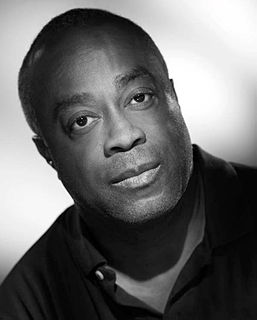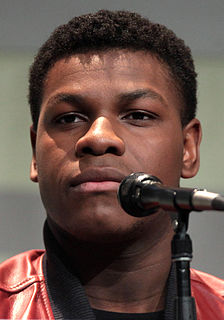A Quote by Charles Burnett
There are advances in technology and enabling voices, but there are issues with the stories themselves. I think people of color are still not seen as human beings. They're still associated with types, with comedy, but we're in a crisis right now, with things like Black Lives Matter. We need films that address these issues.
Related Quotes
I wanted to make sure the focus [in The Land] was on human beings themselves and their decisions, but still connected to the urban environment that people associate as being black. I think I was able to make a film without commenting on "black this or black that" and you still feel the presence of it. There's no one character who's saying "we're all black and we're all in this struggle." It's that you just feel it. Some of that is because we get the sense from a lot of independent films that black people struggle all the time.
I think it's really important to champion stories from trans women and trans women of color. That demographic has gone unheard and unsupported for so long, and it's really the community that's struck the hardest by a lot of issues. I try to do a lot of work to champion trans feminine issues and stories, but that said, I do have a personal and deep investment in seeing trans masculine stories reflected in culture. It is a little disappointing to me that trans men and trans masculine people have not really been part of this media movement that we're experiencing right now.
I think the way the country has changed in part because of the presidency of Barack Obama, I think in part because of what we`ve - the violence that we have seen on our cell phones and our TV sets over the last couple of years. I think Black Lives Matter has helped to force these issues. Women like Sabrina Fulton. We`re having a different conversation in this country right now about race and what it means to really understand your experience is and my experience is.
One of the issues I think is very important, in many communities of color, there's a stigma about mental health. We find that the shaming that comes from acknowledging that one may have some issues that may relate to mental health, often people are not willing to go and seek additional help because of that shaming or that cultural stigma that's associated with it. And I think that we need to make this change in how people approach mental health.
The scientific community should work as hard as possible to address major issues that affect our everyday lives such as climate change, infectious diseases and counterterrorism; in particular, 'clean energy' research deserves far higher priority. And science and technology are the prime routes to tackling these issues.
This is the 21st century, and we would all like to think racism is dead in America. Actually, that's not the case: still there are some racial issues that are out across this nation, and so we have a responsibility as compassionate citizens of America, no matter what our ethnic group happens to be, to confront these issues when they arise.
Hollywood is so fixated on keeping it that way because it's generating the buzz, but that representation isn't right. I definitely feel like it's getting better - it's not only for blacks, but for people that are of all different skin colors. It is very important that black independent films get seen. We need to start getting used to black people. They exist. And they've been around for a long time. It's amazing that people still feel, "Oh my gosh, it's a black guy."
The thing is, right now the films don't need to be overtly political to be about our times. We also need films that are just human, that are about people. People need that, too. It's like we need to reconnect to what it is to be human. Not just what our political situation is. That's not what I'm thinking about exclusively. Human content is needed again, as it was in the '70s. I think films were more human than they've been since then.





































